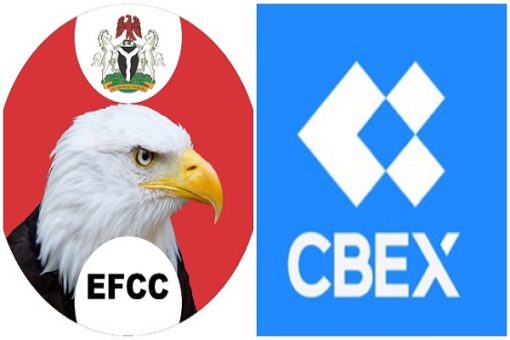
Senate probes loss of N1.3trn to CBEX, Ponzi schemes in Nigeria
The Nigerian Senate has initiated a comprehensive investigation into the activities of Ponzi scheme operators and other fraudulent online financial transactions, following the passage of a resolution on Wednesday.
This decision comes amid growing concern over the increasing exploitation of investors.
Central to the Senate’s inquiry is the collapse of the Crypto Bullion Exchange (CBEX), which led to estimated losses exceeding ₦1.3 trillion for Nigerian investors.
In response, four Senate committees—namely, Capital Market and Institutions; Banking, Insurance and Other Financial Institutions; Anti-Corruption and Financial Crimes; and ICT/Cybersecurity—have been directed to conduct in-depth investigative and public hearings into the operations of such schemes within a four-week timeframe.
The resolution was passed while the Senate President, Godswill Akpabio, presided over the plenary. It followed a motion jointly sponsored by Senators Mukhail Adetokunbo Abiru (Lagos East) and Osita Izunaso (Imo West), drawing attention to the immense economic hardship caused by failed Ponzi schemes over the years.
The Senate expressed deep concern over the “rapid proliferation and alarming rise of unregulated and fraudulent investment schemes—commonly known as Ponzi or pyramid schemes—such as MMM Nigeria in 2016 and MBA Forex in 2020, among others, which have repeatedly defrauded millions of Nigerians, causing severe financial hardship, and in some cases, leading to depression, family breakdowns, and even suicide.”
The motion also noted the recent case of CBEX, a digital investment platform that lured millions of Nigerians with promises of outrageous returns before suddenly collapsing. The result: over N1.3 trillion (about $847 million) lost, making it one of the most devastating financial scams in the country’s history.
It further highlighted that the CBEX incident was not isolated but part of an existing and growing pattern of unregulated, tech-driven schemes leveraging social media, referral commissions, celebrity endorsements, and fake testimonials to deceive the public.
Leading the debate, Senator Abiru expressed shock that such schemes could grow so rapidly despite supposed regulatory oversight by institutions such as the Central Bank of Nigeria (CBN).
He questioned how CBEX continued to operate without sanctions from regulatory bodies like the Securities and Exchange Commission (SEC), CBN, the Nigerian Financial Intelligence Unit (NFIU), or the Economic and Financial Crimes Commission (EFCC).
Abiru called it a failure of regulatory agencies and urged the National Assembly, as representatives of the people, to intervene through detailed investigations.
“The lack of coordinated oversight, real-time monitoring, and strict enforcement by relevant agencies has created an enabling environment for these schemes to flourish. This erodes public trust in legitimate financial institutions and poses systemic risks to the economy,” he added.
Senate Whip, Senator Mohammed Monguno (Borno North), while contributing to the debate, observed that Ponzi operators take advantage of vulnerable and gullible Nigerians, defrauding them of their hard-earned money and even driving some to early graves. He called for tougher legislative measures to address the economic threats posed by these fraudulent schemes.
Kwara State Senator, Sadiq Suleiman, urged the Senate to step in to protect Nigerians, many of whom he said are unaware of the risks involved in staking their limited resources on such online investments.
“We must continually monitor financial schemes to protect citizens. Our agencies must rise to the occasion and carry out their regulatory functions,” he said.
Senator Solomon Olamilekan (Ogun West), Chairman of the Senate Committee on Appropriations, pointed out that young Nigerians are often the largest group of investors in these schemes, attracted by the promise of quick returns.
“I wonder how this monumental fraud happened under the watch of the CBN. We will summon the CBN to explain what regulations were in place to prevent such scams. Beyond Ponzi schemes, there are many other online platforms defrauding Nigerians. Are we saying Nigeria is so porous that we lose trillions of naira just like that?” he queried.
Senator Abdul Ningi (Bauchi Central) described the motion as “extraordinary,” requiring equally extraordinary action.
“We have laws, but Ponzi schemes keep evolving. Who are the people behind them, and why have there been no arrests?” Ningi asked. He also shared personal stories of constituents who invested their meager stipends—N5,000, N10,000, and N20,000—into Ponzi schemes, only to lose everything.
Before the debate concluded, Senate President Akpabio recalled the infamous Umanah Umanah scheme in Port Harcourt during the 1990s, which promised quick returns and collapsed after people were encouraged to continuously deposit more money.
“It was a terrible nightmare. Many people lost their savings,” he recalled.
He directed that the Senate’s investigation must include zonal public hearings where necessary and be thorough enough to bring all Ponzi scheme operators to justice.
Akpabio also recommended a nationwide public awareness campaign—including road walks and other activities—to educate vulnerable Nigerians about the risks of investing in fraudulent schemes.
- Canada Increases Minimum Proof Of Funds To N17m For Immigrants
- Tunji-Ojo Meets US Envoy Over Three-Month Visa Policy
- Why Peter Obi Cannot Fly ADC Presidential Ticket In 2027 – Kenneth Okonkwo
Share your story or advertise with us: Whatsapp: +2348033202396 Email: sentinelnewsng@gmail.com








